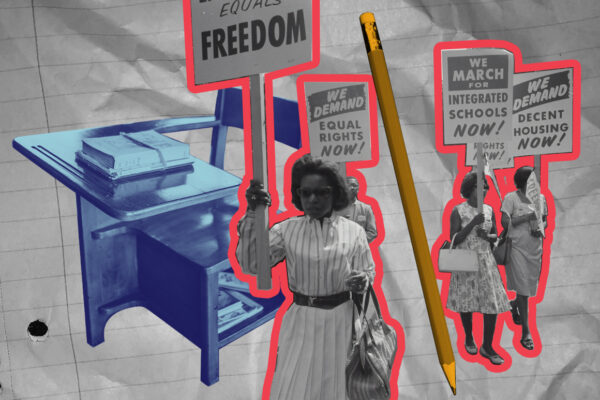In Ohio’s distant history, our laws prohibited Black people from voting. Or holding office. Or serving on juries. Or even testifying in court against white people.
Ohio law also prevented Black people from marrying whites. Black Ohioans were even forbidden from attending public schools, until they were finally allowed to attend segregated schools. Many of these laws were in place for almost a half century.
House Bill 322
Under House Bill 322, such history is not permitted to be taught in our classrooms as systemic racism, orchestrated and facilitated by government. Instead, it must be taught only as “deviations from, betrayals of, or failures to live up to the founding principles of the United States.”
Which curiously sounds like historical revisionism when one considers such oppression was ever present, and even much worse with slavery, at the time our country was founded and long after that.
HB 322 does not only concern itself with how deliberate racial oppression is taught. It demands that if a teacher decides to discuss any “current events or widely debated and currently controversial issues of public policy or social affairs” they must do so “from diverse and contending perspectives.”
HB 322 offers zero definition of what supporters contend is “widely debated” or “controversial”, leaving teachers, perhaps purposely, to be ever-guessing what topic may earn them scorn at the Statehouse. The end result will be teachers altogether abandoning numerous topics.
But those very few who still decide to navigate these choppy waters will now have to present “both/all sides” to subjects such as the Jewish Holocaust and Jim Crow laws. All because most House Republicans do not agree students should be taught some things are so objectively horrible and wrong a public school should communicate an unequivocal position.
HB 322 is so thoroughly anti-education it even outlaws tasking students with any classroom projects or assignments that involve lobbying for legislation. Currently, some Ohio classes will create a bill – like for an “official state cookie” – and use that to teach students the legislative process from start to finish. But not under HB 322; even that would be illegal.
I can go on and on about how terrible HB 322 is (It also allows any/all school staff to ignore the needs of any/all transgender students) but want to leave space for House Bill 327, an equally odious, if not more so, bill.
House Bill 327
Whereas HB 322’s focus is mostly on schools, HB 327 adopts much of HB 322’s thinking, and applies it to not only K-12 schools, but also state colleges and universities, local governments, and all state agencies and departments.
Should you wish to teach students – or state employees, or police officers, or anyone else targeted by this bill – that sometimes they unconsciously act in harmful ways against others because they are biased by their own race, sex, or religion, please know HB 327 makes such instruction against the law. You also cannot instruct that some people benefit, even if unintended, from racism and sexism in our culture and country while others, of course, do not.
In fact, if a teacher or instructor voices these concepts in a public school or college classroom, they can be individually sued via HB 327 and bankrupted as a result. Their school will lose at least 25% and up to 100% of its state funding. Their teaching license or tenure will be affected. That is how badly HB 327 supporters do not want any discussion, by anyone, at any time, about such things as inherent bias – they will sue you, get you fired, and shut you down.
HB 327 also totally abandons academic freedom in our public university classrooms. Whereas higher education instructors, by design, enjoy great leeway in what they teach and how they teach, HB 327 dumps the whole concept of colleges and universities, and First Amendment rights, entirely overboard.
Yes, those who profess to be against Big Government at every turn now want to micromanage every discussion from kindergarten classes to PhD programs. Plus, under HB 327, they are creating and expanding bureaucracies at all levels of government to monitor, tattle on, issue reports regarding, and enforce this bill.
The crux of these two bills boils down to what do we discuss with and teach Ohioans, especially our students, about race, race relations, and this state and nation’s complicated and often shameful histories? For supporters of HB 322 and HB 327, the answer is clear. These subjects are not to be discussed. If they are at all, Statehouse politicians are to proscribe how to narrowly discuss them and only within parameters that, in no way, suggest such problems were or are systemic, ongoing, intentional, or even unintentional.
Our students, especially Ohio’s students of color, deserve much better than these bills. Our schools, among other entities, should be proactively addressing these issues in thoughtful, productive, and comprehensive ways. As a country and as a state we have come a long way. But there is still a long way to go. HB 322 and HB 327 supporters want to erase progress and silence people. Together with countless Ohioans, we will not let them.


